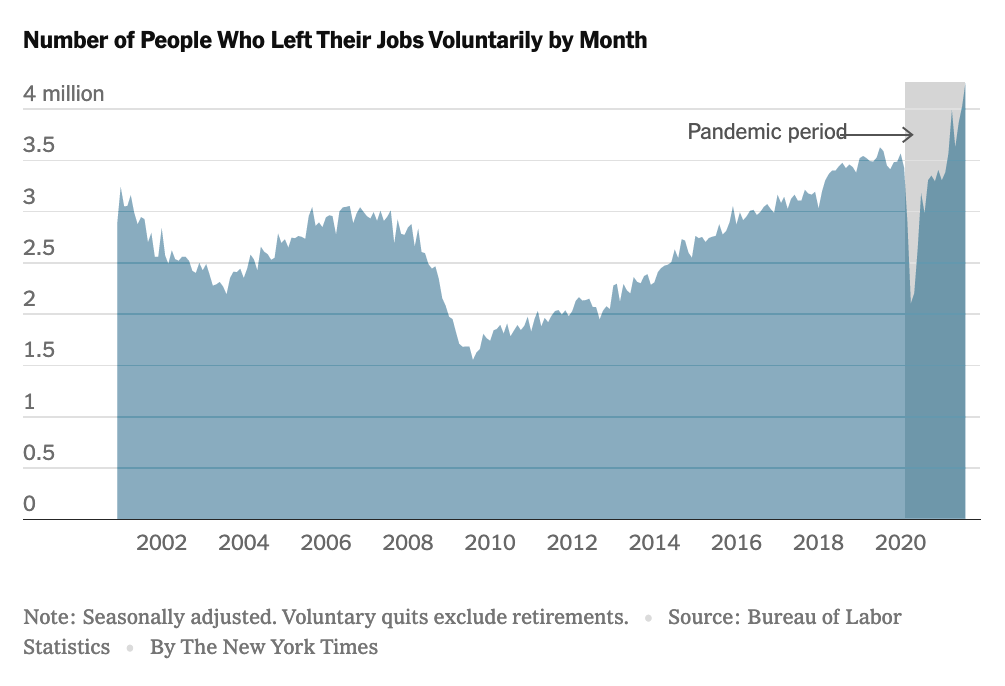
As I write this, I’m stuck in Minneapolis-St Paul for a seven-hour layover, en route to show more sales training techniques at a dealership. And I had no control over what caused it all. After a medical emergency and two de-icings, my flight was over an hour late. Upon landing, I saw an outpouring of sympathy for a freshman at my son’s school who lost his lifetime battle with cancer. There is heavy news, then there is f*cking heavy news. Despite what we try to emulate and curate on Instagram, we’re still passengers on a rock corkscrewing around the Milky Way galaxy. Life is very short. Time is very precious.
From shutdowns to shortages to bowing at the altar of a new technical overlord, dealing with continuous change sucks. As creatures of habit, we find comfort in the predictable. We take the same route to drop the kids off at school. We stop at the same gas station on the way to work. We park our cars as close to the same parking spot as possible. We eat at McDonald’s when we’re out of town. We use the same writing style when composing our blogs. Subconsciously, these actions bring us the comfort of familiarity.
As trips to the gas pump, the grocery store, and going out to dinner are getting way more expensive, we’re reminded that things are different almost every minute. Despite what your Facebook…or is it, Meta, now…friends suggest, workers from all ranks quit their jobs at a pretty steady rate, barring major calamities (Great Recession, Pandemic). This includes car dealerships. That said, anyone can glance at the graph to the left and see two things: the normal churn is around 3 million, and the trajectory has changed upward since 2009. The sky started falling just after 2016. You should be surprised about being surprised.

But, too much has been written about doom and gloom, and this author needs a break from it.
It’s Not About What’s Going On. It’s About How You React to It.
If you’re reading this, you have access to the Internet, which implies you have electricity and aren’t freezing to death in the elements. If you’re working at a car dealership, this comes for free, so you’re better off than most. It’s time to assess what you can control and what your cannot.
Let’s look at a quick list of things in the car business complaining will not fix:
- Complaining will not put inventory in the showroom, on a lot, or on shelves
- Complaining about prices will not make things cheaper
- Unless an actual law is broken, complaining won’t make bad business owners, c-suite executives, those ready to inherit the business, and shareholders go away
- Complaining about bad employees doesn’t make better employees
I can make a much longer list, but you get the point. There is only so much in the world that you can control. Right down to the supply of basic raw materials. What you can control is how you react to change, how you control your reactions, the decisions you make, and how you perceive what’s in front of you. Far too many people are giving up, and many more people are placing the blame on others. The truth is that we’re all to blame and innocent simultaneously. When you are pointing at others, somewhere there is a mirror, a screen, or a window of you pointing back yourself.
When you find yourself starting to blame others, stop and ask yourself what you can do to change the situation. Let’s revisit the three things at car dealerships that can’t be changed from above:
- Are you constantly presenting options to customers that you can deliver right away?
- Are you regularly resetting pricing expectations while at the same time presenting options that may be less expensive?
- Are you building strategies, maybe even exploiting loopholes, that can overcome those who are getting in your way?
- Are you hiring the best candidates for the job, being a good mentor and teammate while helping cultivate a culture of advancement?
If you answered “no” to any of these, then you are not controlling what you can control.
People Who Take Control Do It. They Don’t Just Talk about It.
So you’re probably saying to yourself, ‘but, Bill this will get me in trouble.‘ It might. But, for an industry that uses phrases like “big boy pants,” “weak stick,” “lay down,” and mentions “crushing” and “pounding” more than a team of miners, managers should be ready to reward bold moves. Otherwise, they’re willing to fall victim to the very same things they can’t control.
You’re drowning while waiting for a rescue boat when lifepreservers rain from the sky. While wasting effort lamenting the things that can’t be changed inside the dealership, you’re propping up the status quo, expending time and energy on not finding solutions that can push you forward. Nothing stops you from taking advantage of a lifetime of free training on the forums or YouTube. Nothing stops you from taking control of the training you are receiving. Nothing stops you from paying out of your pocket to attend a conference, seminar, or sales skills training sessions. Nothing stops you from creating and investing in a business plan to work with your existing customers.
What’s Stopping Your Sales Team Training Opportunities?
If you’re feeling particularly flush, nothing stops you from creating and purchasing your own leads or even building multiple websites around your business. Nothing stops you from investing in effective sales team training and/or developing the necessary talent to sustain the business. These are all within the locus of your control. Sometimes opportunity is given. More often, opportunities are taken.
If the last two years have taught us anything, it’s that the world is wildly unpredictable. Sometimes we don’t get to go where we want on time. Sometimes we inexplicably lose a young soul. Despite what we want to tell ourselves, events are almost always out of our control. Work isn’t waiting for opportunities to fall in your lap. Any primate can do that, let alone a piece of technology. Work is exerting yourself to go above and beyond to reap rewards. If opportunities aren’t falling into your lap where you sit, move.









One Response to “Control What You Can Control”